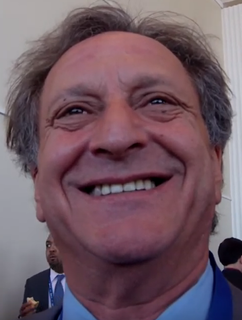A Quote by Rand Paul
What I've always said is that I'm opposed to institutional racism, and I would've, had I've been alive at the time, I think, had the courage to march with Martin Luther King to overturn institutional racism, and I see no place in our society for institutional racism.
Related Quotes
I see racism as institutional: the rules are different for me because I'm black. It's not necessarily someone's specific attitude against me; it's just the fact that I, as a black man, have a much harder time making an art-house movie and getting it released than a white person does about their very white point of view. That's racism.
The times when black women have been successful in confronting and overcoming the structural and institutional sexism and racism that persists in our society have been when we are thoughtful and strategic about speaking up. It's when we've done what it takes to introduce and implement our ideas and our plans to make things better.
Dr. [Martin Luther] King led a very historic march here in Washington, D.C. It was a march for jobs and freedom. It was a march to raise expectations that this country could live up to its ideals. I have watched this debate, this conversation [betwin Hillary Clinton and Donald Trump] about bigotry, about racism, I find it all misplaced.
For most Black people there is still poverty and desperation. The Ghettos still exist, and the proportion of Blacks in prison is still much greater than Whites. Today, there is less overt racism, but the economic injustices create an "institutional racism" which exists even while more Blacks are in high places, such as Condoleeza Rice in Bush's Administration and Obama running for President.































